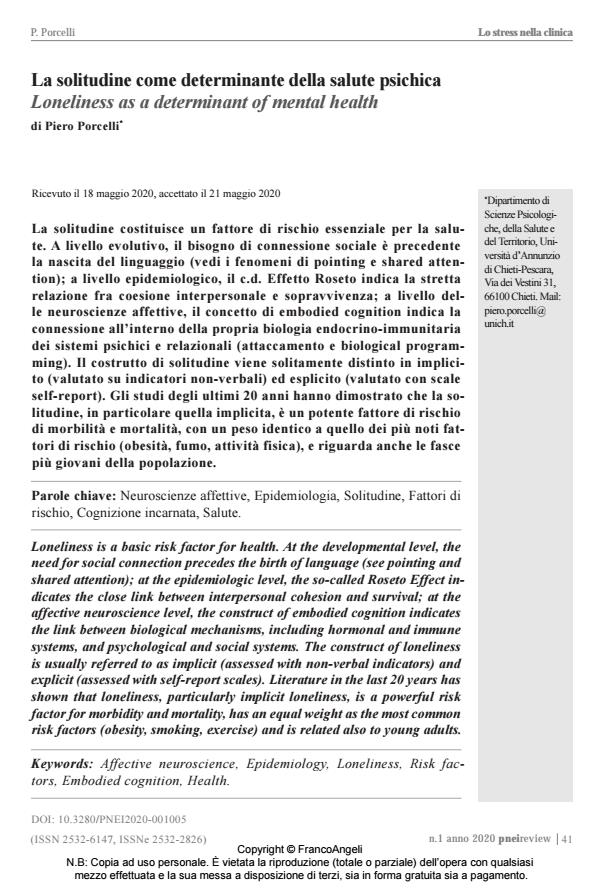Loneliness as a determinant of mental health
Journal title PNEI REVIEW
Author/s Piero Porcelli
Publishing Year 2020 Issue 2020/1
Language Italian Pages 8 P. 41-48 File size 240 KB
DOI 10.3280/PNEI2020-001005
DOI is like a bar code for intellectual property: to have more infomation
click here
Below, you can see the article first page
If you want to buy this article in PDF format, you can do it, following the instructions to buy download credits

FrancoAngeli is member of Publishers International Linking Association, Inc (PILA), a not-for-profit association which run the CrossRef service enabling links to and from online scholarly content.
Loneliness is a basic risk factor for health. At the developmental level, the need for social connection precedes the birth of language (see pointing and shared attention); at the epidemiologic level, the so-called Roseto Effect indicates the close link between interpersonal cohesion and survival; at the affective neuroscience level, the construct of embodied cognition indicates the link between biological mechanisms, including hormonal and immune systems, and psychological and social systems. The construct of loneliness is usually referred to as implicit (assessed with non-verbal indicators) and explicit (assessed with self-report scales). Literature in the last 20 years has shown that loneliness, particularly implicit loneliness, is a powerful risk factor for morbidity and mortality, has an equal weight as the most common risk factors (obesity, smoking, exercise) and is related also to young adults.
Keywords: Affective neuroscience, Epidemiology, Loneliness, Risk factors, Embodied cognition, Health.
- Effects of textual prompting and constant time delay on social communication skills of young adults with Prader Willi syndrome during online socialisation activities Luca Vascelli, Federica Berardo, Silvia Iacomini, Maristella Scorza, Francesca Cavallini, in Journal of Applied Research in Intellectual Disabilities /2023 pp.259
DOI: 10.1111/jar.13052
Piero Porcelli, La solitudine come determinante della salute psichica in "PNEI REVIEW" 1/2020, pp 41-48, DOI: 10.3280/PNEI2020-001005